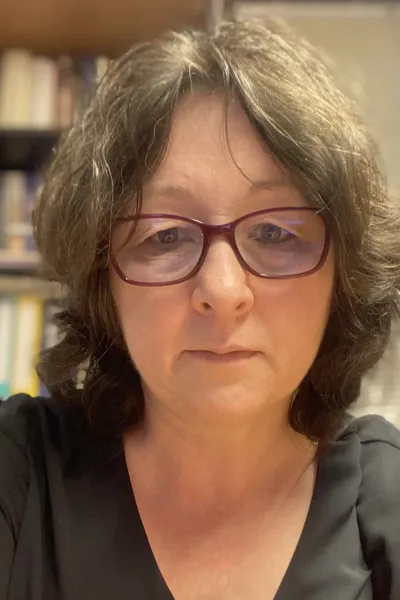Friderika Horváth

Friderika Horváth is a senior research fellow at the ELTE Archaeological Institute at the Research Centre for the Humanities. Her research covers various aspects of provincial Roman archaeology. Since 2021, she serves as the head of the Department of Archaeological Heritage and Methodology, overseeing the Graphic and Conservation Groups and the Archives. In this role, she is responsible for managing research services and the department, planning the professional work of the archival section, and developing professional protocols for archiving and disseminating research data within the legal framework. The Archives house primary research documents, interdisciplinary research work documentation, and other materials that support long-term preservation, making the data available for research and reuse.
The objectives for 2024, as part of the Ambassador Programme include the organization and processing of the research data set of the Pilismarót-Basaharc Copper Age cemetery for placement in the ARP repository. Pilismarót-Basaharc, established in the second half of the 4th millennium BC, holds a significant place as a unique and iconic cemetery in the Carpathian Basin. Belonging to the Boleráz group of the late Copper Age Baden culture, the cemetery contains 110 cremation graves, making it the largest known burial ground in the culture's distribution area. The site was unearthed during a large-scale rescue excavation series prior to the planned construction of a Danube hydroelectric power plant, which was the Institute's most extensive project after the international Nubian salvage operation. The comprehensive analysis and publication became feasible from 2012 onwards with the support of an OTKA (National Science Foundation Programs) grant (led by Mária Bondár, DSc). The analysis yielded archaeological, anthropological, archaeozoological, geological, malacological, and isotope geochemical, as well as radiocarbon dating results, all of which constitute part of the data set.
The participants are optimistic that the continuation of the Ambassador Programme will foster further collective thinking and provide a forum that allows for the development of appropriate future practices for managing their research programmes, drawing on each other's experiences. In addition to deepening their own knowledge, they place emphasis on informing and motivating their research community, particularly stressing the importance for researchers to understand the significance of proper data management and preservation, and to recognize the benefits of data sharing, such as easier access and long-term preservation of research results.